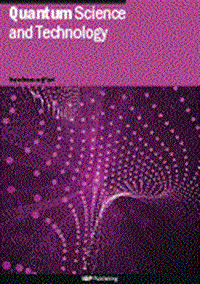Fundamental limits and experimental implementation of dispersive quantum thermometry
IF 5
2区 物理与天体物理
Q1 PHYSICS, MULTIDISCIPLINARY
引用次数: 0
Abstract
Temperature estimation, known as thermometry, is a critical sensing task for physical systems operating in the quantum regime. Indeed, thermal fluctuations can significantly degrade quantum coherence. Therefore, accurately determining the system’s operating temperature is a crucial first step toward distinguishing thermal noise from other sources of decoherence. In this work, we estimate the unknown temperature of a collection of identical and independent two-level atoms dispersively probed by a single-mode quantized electromagnetic field. In contrast to previous works, we present an analytical sensing analysis demonstrating that the joint atom-field evolution—without any assumptions or approximations—can achieve, at best, the standard quantum limit of precision concerning the number of field excitations. To investigate our analysis further, we propose and implement our thermometry scheme on a nonlinear Mach–Zehnder interferometer, which we realize through quantum digital simulation. Our proposal is highly flexible regarding atomic state preparation, allowing the initialization of atomic ensembles with positive and effective negative temperatures. This makes our proposal a promising and versatile testbed for benchmarking thermometric capabilities in current quantum simulators.色散量子测温的基本限制与实验实现
温度估计,被称为测温,是在量子状态下运行的物理系统的关键传感任务。事实上,热波动会显著降低量子相干性。因此,准确确定系统的工作温度是区分热噪声和其他退相干源的关键的第一步。在这项工作中,我们估计了由单模量子化电磁场色散探测的相同和独立的两能级原子集合的未知温度。与以前的工作相反,我们提出了一个分析传感分析,证明联合原子场演化-没有任何假设或近似-最多可以达到关于场激发数量的标准量子精度极限。为了进一步研究我们的分析,我们在非线性马赫-曾德尔干涉仪上提出并实现了我们的测温方案,并通过量子数字模拟实现了该方案。我们的建议在原子态制备方面具有高度的灵活性,允许初始化具有正负温度和有效负温度的原子系综。这使得我们的提议成为当前量子模拟器中对测温能力进行基准测试的一个有前途和通用的测试平台。
本文章由计算机程序翻译,如有差异,请以英文原文为准。
求助全文
约1分钟内获得全文
求助全文
来源期刊

Quantum Science and Technology
Materials Science-Materials Science (miscellaneous)
CiteScore
11.20
自引率
3.00%
发文量
133
期刊介绍:
Driven by advances in technology and experimental capability, the last decade has seen the emergence of quantum technology: a new praxis for controlling the quantum world. It is now possible to engineer complex, multi-component systems that merge the once distinct fields of quantum optics and condensed matter physics.
Quantum Science and Technology is a new multidisciplinary, electronic-only journal, devoted to publishing research of the highest quality and impact covering theoretical and experimental advances in the fundamental science and application of all quantum-enabled technologies.
 求助内容:
求助内容: 应助结果提醒方式:
应助结果提醒方式:


